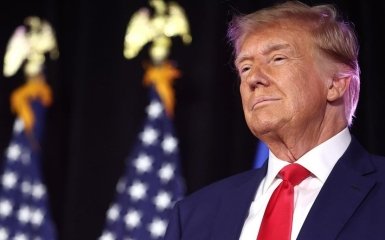For European countries and many other countries of the world, which have been used to hiding under the umbrella of American power for so long, the story of the withdrawal of the Ukrainian military from Avdiyivka should be an alarm bell. All the more so after the Kremlin warned this week that relations between Russia and NATO countries "descended to the level of direct confrontation."
Can the US turn its back on NATO?
Pax Americana — that is, the post-World War II concept of global stability overseen by the mighty United States under threat.
Its end will mean a revolution in world relations. And, like many other revolutions in modern politics, the changes are related to the potential second presidential term of Donald Trump, according to The Telegraph.
This perspective forces a reassessment of one of the fundamental assumptions of security planning since 1945. From Canberra and Seoul to London and Paris, security analysts have asked themselves whether the United States is still a reliable ally. Is any country that has built its strategic security after 1945 around American power safe? Will they suddenly be left alone?
How Pax Americana can be affected
It is difficult to overestimate America's role in European and global security. This week marks the 75th anniversary of the founding of NATO. Since 1945, Great Britain, Western Europe, Australia and New Zealand, Japan, the Philippines, and South Korea have built their security on the basis of mutual defense pacts with the United States.
Some of those allies — notably European NATO members, Japan, South Korea and Australia — are directly under what is often called America's "nuclear umbrella," which aims to keep several countries from building their own bombs.
If the concept of Pax Americana is truly over, the potential consequences are almost too great to fathom, writes The Telegraph.
America's retreat
The immediate consequences of the American retreat are already being felt. The refusal of the Speaker of the US Congress, Mike Johnson, to submit a bill to the US House of Representatives, at the behest of Donald Trump, deprives Ukraine of much-needed weapons.
Johnson hinted this week that he may finally bring the bill to a vote on April 9, when the US Congress returns from its Easter recess. The pressing concern is that US reluctance to support Ukraine could weaken NATO's security as a whole, especially given Trump's comments that non-paying NATO members "will get no protection."
America's retreat will also have international ramifications if it does so. The worst-case scenario is a kind of 1945 in reverse: a Western defeat in Ukraine, followed by a Chinese offensive on Taiwan that, if not countered, will deal a fatal blow to American influence in the Pacific. Even if this is not taken into account, the likely result will simply be more instability and more conflict.
What should be the solution
Richard Haas, an authoritative expert on American foreign policy, suggests three cornerstones for US allies to help them emerge from the crisis: greater reliance on their own forces, the search for new security partners, and some form of accommodation to adversaries. In Europe and the Western Pacific, new security partners mean that existing NATO members can forge more alliances among themselves and reach out to like-minded countries in other regions.
Shifts in global security may also force non-aligned countries to choose sides. Some of them look much more favorably towards Moscow or Beijing, either for ideological reasons or for economic and political interests, further undermining American influence and the cohesion of the Western alliance.
What should be done?
European countries, including Great Britain, currently supply Ukrainians with more weapons than the United States, and are taking steps to expand production. The Czech Republic takes the initiative to purchase up to 1.5 million shells on the international market. The first parties should enter the front already in June.
If agreement can be reached on Stoltenberg's proposal for a "mission to Ukraine" at a NATO summit marking the alliance's 75th anniversary in Washington in July, it could lock in aid for Ukraine until Trump's possible return to the White House. But filling the gap left by the United States will be difficult. Some products—such as parts for M777 howitzers and Bradley infantry fighting vehicles—are manufactured exclusively in the United States. No one else has such capabilities in the field of intelligence and logistics.



